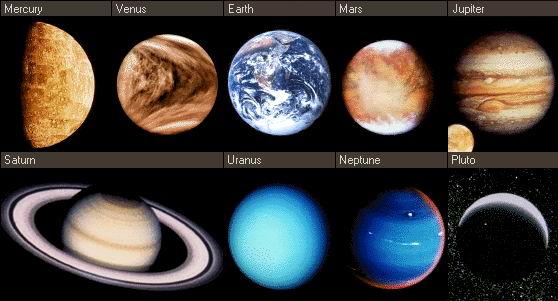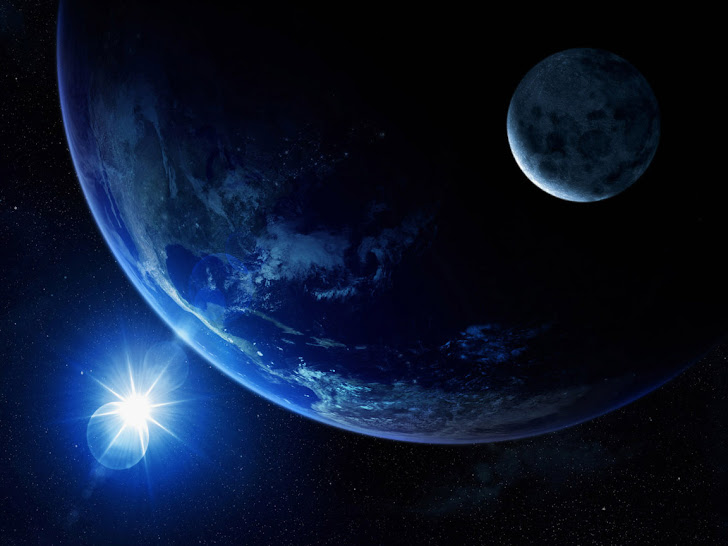Pluto was named after Roman god of the underworld, who was able to make himself invisible. Pluto is a dwarf planet, because its so small and made of ice. Some people say pluto isnt really a planet, because it is a dwarf planet. Pretty much all of the time on pluto, it is dark, because the sun beams are hard to recieve on this planet. Even through a telescope, Pluto is very hard to see. Pluto is one fifth smaller than Earth. Pluto, and its moon, Charon, are very close The name pluto from the roman god, would collect the souls of the dead, and Charon was the boatman who took the bodies to Pluto.
Space with Kaynah :)
space planet name origins with kayla &Hannah. This blog provides info about planets and gods.
Planets and gods
About 2,300 years ago the astronomer Aristotle gave the planets
names of Greek gods. Aristotle did his best to match the characters the gods
where supposed to have with what he knew about planets- there speed, brightness,
and colour. Later greek writing about the planets was translated into the Latin
language, so the greek planet names were changed to the names of the equivalent
Roman gods. Hermes became Mercury, Aphrodite became Venus, Ares became Mars,
Zeus became Jupiter, and Cronos became Saturn.
planets

Earth

Wednesday 23 November 2011
NEPTUNE
Neptune, a blue planet, was named for the Roman god of the sea. Neptune is the eighth planet from the sun, so it is pretty cold and covered in water. Neptune is the brother of Jupiter god of all gods. Uranus is the closest planet to Neptune. Neptune is described as a wild and angry because of its storms.
I think Neptune is cool because apparently it rains diamonds on this planet.
I think Neptune is cool because apparently it rains diamonds on this planet.
URANUS
Uranus was named for the Greek god of the sky. The astronmer William Lassell, who found two of Uranus' s moons in 1851, started to name all of the planet's moons after the characters from William Shakepseare's work. Uranus is described as a calm but dull planet with almost no clouds. Uranus's name is the eldest god of gods he is the husband of mother earth, father of saturn, and jupiter is his grandson. I think the history of the name Uranus is one of the most interesting planets in our solar system because of how old it is.
SATURN
Saturn was the Roman name for the Greek Cronos, god of farming and the father of Zeus/Jupiter. Some of its moons were named for Titans who were brothers and sisters of Saturn. Multicolored rings
surround saturn. Cronos (Saturn) ate his sons and daughters because he did not want anyone to take his place as a leader of gods, until his wife hid Jupiter son of Cronos from him so he would not eat him. Jupiter became a mighty warrior, and managed to banish Saturn far into the heavens, while saving his brothers and sisters. I think this is definately the most fascinating Greek mythology story.
JUPITER
The largest and most massive of the planets was named Zeus by the Greeks and Jupiter by the Romans. Jupiter is the biggest planet out of all of them. You could fit thousands of earths inside Jupiter. thats how big it is! Jupiter is the greek god that saved his brothers and sisters from his cannible father. Jupiter is named the greatest god of all. Clouds and rain cover this planet and is common for shooting bolts of thunder onto the face of Jupiter. A huge storm on Jupiter has been raging for hundrerds of years that could fit Earth in it several times. It is called the giant red spot. You are able to see it from Earth.
MARS
Named by the Romans for their god of war because of its red, bloodlike colour. This is the colour for anger and danger. This planet is the most feared of all the gods, because he was always furious. Mars' moons were named after demons. But in truth, it is a small and unthreatning planet. Mars has seasons almost like Earths seasons. Mars is well known for its powerful winds that make the red dust go very far. I think Mars is similar to Earth because of its seasons, volcanoes, and how it once had water.
Subscribe to:
Posts (Atom)






